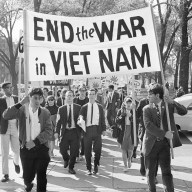The holidays are the face-off of the sustainability game. They’re the moment when the whole game seems to hang in the balance of a single set of actions.
That’s because the challenge of environmental sustainability is for us to learn joy with modest consumption. And the holidays are pregnant with the promise of joy and the products of consumption. On average, Canadians spent many hundreds of dollars on gifts — even in recessions — and then Boxing week, we splurged on ourselves.
We consume in such quantities because we think it’ll make us happy. And yet, all kinds of evidence flies in the face of that belief: statistics shows that above a modest minimum, even large increases in consumption add little to our happiness. My own observations suggest that families who celebrate with copious and conspicuous consumption are no happier. My own family struggles with this consumption dilemma, too. If gifts are assumed to demonstrate our love for each other, the giving escalates and we end up with much more than we need. We set guidelines and expectations (little is needed) to cap the competition, and it works well: Although we’re a much bigger family now (six kids under 10), we give less in total than we used to — and we’re certainly no less happy.
As a kid, I was gaga over gifts — giving and getting. I’d go to sleep contentedly sated with love and stuff. Although I didn’t know it then, the golden moments of those memories are the people ones. I could have had much less, I think. I’m hoping that with our hard work to make holidays happy and modest, our daughter won’t be as slow as me to discover that it’s the love that makes memories, not the stuff.
– Kai Chan is an assistant professor and Canada Research Chair at the Institute for Resources, Environment, and Sustainability (IRES) at UBC; vancouverletters@metronews.ca.
















